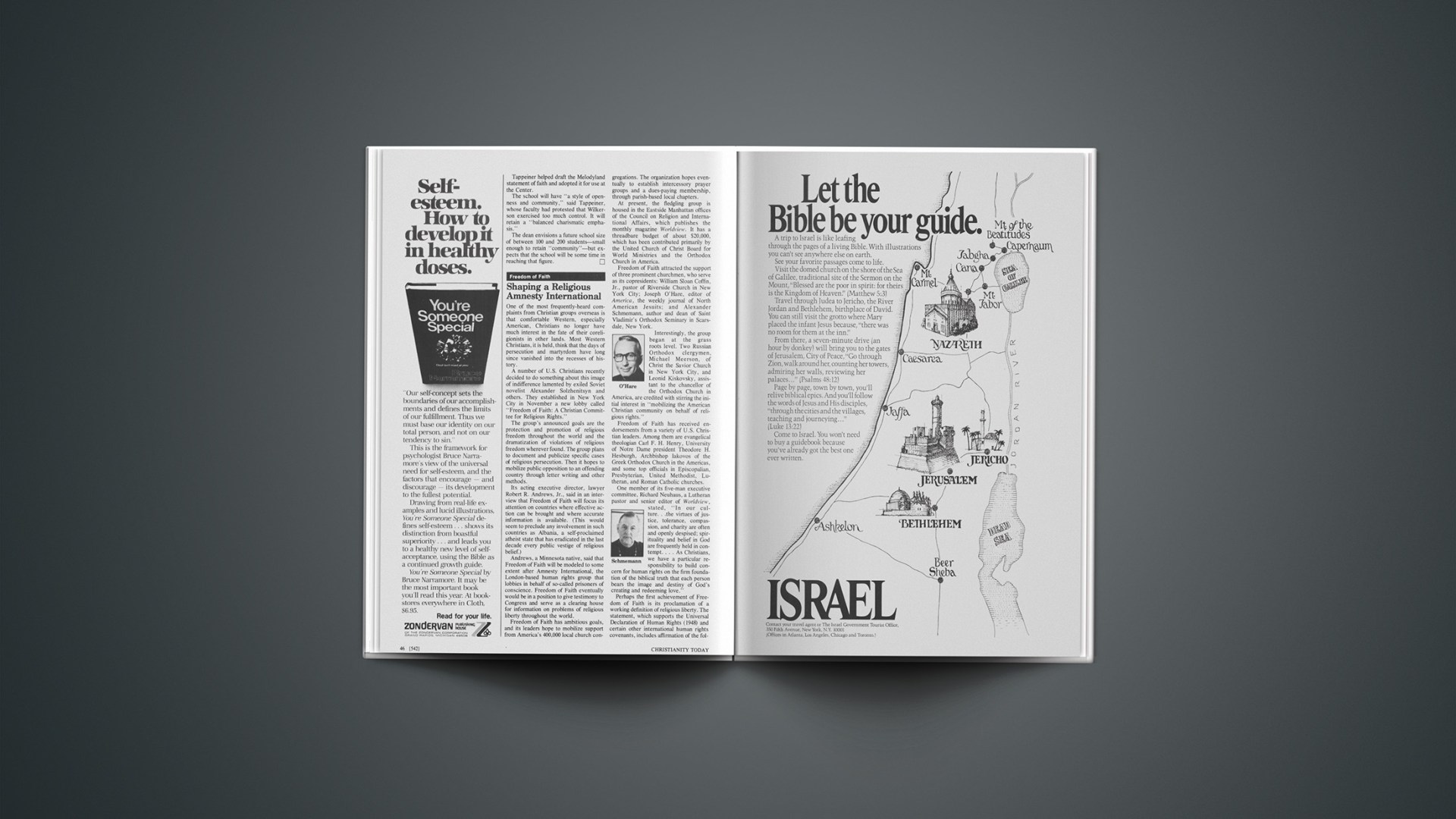One of the most frequently-heard complaints from Christian groups overseas is that comfortable Western, especially American, Christians no longer have much interest in the fate of their coreligionists in other lands. Most Western Christians, it is held, think that the days of persecution and martyrdom have long since vanished into the recesses of history.
A number of U.S. Christians recently decided to do something about this image of indifference lamented by exiled Soviet novelist Alexander Solzhenitsyn and others. They established in New York City in November a new lobby called “Freedom of Faith: A Christian Committee for Religious Rights.”
The group’s announced goals are the protection and promotion of religious freedom throughout the world and the dramatization of violations of religious freedom wherever found. The group plans to document and publicize specific cases of religious persecution. Then it hopes to mobilize public opposition to an offending country through letter writing and other methods.
Its acting executive director, lawyer Robert R. Andrews, Jr., said in an interview that Freedom of Faith will focus its attention on countries where effective action can be brought and where accurate information is available. (This would seem to preclude any involvement in such countries as Albania, a self-proclaimed atheist state that has eradicated in the last decade every public vestige of religious belief.)
Andrews, a Minnesota native, said that Freedom of Faith will be modeled to some extent after Amnesty International, the London-based human rights group that lobbies in behalf of so-called prisoners of conscience. Freedom of Faith eventually would be in a position to give testimony to Congress and serve as a clearing house for information on problems of religious liberty throughout the world.
Freedom of Faith has ambitious goals, and its leaders hope to mobilize support from America’s 400,000 local church congregations. The organization hopes eventually to establish intercessory prayer groups and a dues-paying membership, through parish-based local chapters.
At present, the fledgling group is housed in the Eastside Manhattan offices of the Council on Religion and International Affairs, which publishes the monthly magazine Worldview. It has a threadbare budget of about $20,000, which has been contributed primarily by the United Church of Christ Board for World Ministries and the Orthodox Church in America.
Freedom of Faith attracted the support of three prominent churchmen, who serve as its copresidents: William Sloan Coffin, Jr., pastor of Riverside Church in New York City; Joseph O’Hare, editor of America, the weekly journal of North American Jesuits; and Alexander Schmemann, author and dean of Saint Vladimir’s Orthodox Seminary in Scarsdale, New York.
Interestingly, the group began at the grass roots level. Two Russian Orthodox clergymen, Michael Meerson, of Christ the Savior Church in New York City, and Leonid Kiskovsky, assistant to the chancellor of the Orthodox Church in America, are credited with stirring the initial interest in “mobilizing the American Christian community on behalf of religious rights.”
Freedom of Faith has received endorsements from a variety of U.S. Christian leaders. Among them are evangelical theologian Carl F. H. Henry, University of Notre Dame president Theodore H. Hesburgh, Archbishop Iakovos of the Greek Orthodox Church in the Americas, and some top officials in Episcopalian, Presbyterian, United Methodist, Lutheran, and Roman Catholic churches.
One member of its five-man executive committee, Richard Neuhaus, a Lutheran pastor and senior editor of Worldview, stated, “In our culture … the virtues of justice, tolerance, compassion, and charity are often and openly despised; spirituality and belief in God are frequently held in contempt.… As Christians, we have a particular responsibility to build concern for human rights on the firm foundation of the biblical truth that each person bears the image and destiny of God’s creating and redeeming love.”
Perhaps the first achievement of Freedom of Faith is its proclamation of a working definition of religious liberty. The statement, which supports the Universal Declaration of Human Rights (1948) and certain other international human rights covenants, includes affirmation of the following religious rights:
• Every person has the right to determine his or her own faith and creed according to conscience.
• The right to privacy of belief, to express one’s religious beliefs in worship, teaching and practice, and to proclaim the implications of one’s beliefs for relationships in a social or political community.
• The right to associate with others and to organize with them for religious purposes.
• Every religious organization, formed or maintained by action in accordance with the rights of individual persons, has the right to determine its policies and practices to accomplish its chosen purposes (which implies numerous rights, including the right to make proselytes, form congregations, and publish and circulate religious literature).
Freedom of Faith’s first documentation of violations of religious rights was issued on Christmas. Five cases were cited. The Soviet Union was criticized for its arrest of an “unrecognized” Adventist leader and for denying a group of Orthodox worshipers the right to conduct services in the Ukrainian village of Hotovitz.
Argentina was cited for an executive decree banning Jehovah’s Witnesses, while the Philippines was cited for government action that closed down a Roman Catholic radio station and a publication accused of “subversion and sedition.” Finally, South Korea was criticized for its recent imprisonment and alleged harassment and torture of two Presbyterian ministers.
Freedom of Faith leaders hope to attract the interest of America’s 120 million Christians. In so doing, they believe there can be a new growth of religious freedom throughout the world.










